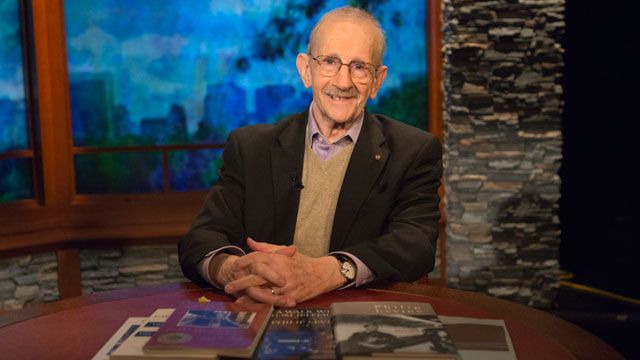Philip Levine was born in Detroit, Mich., and was educated in the Detroit public school system and at Wayne University. After graduation, Levine worked a number of industrial jobs, including the night shift at the Chevrolet Gear and Axle factory. In his free time away from work, he read and wrote poetry. In 1953, he studied at the University of Iowa, earning an MFA from the Iowa Writers’ Workshop. There, Levine studied with poets Robert Lowell and John Berryman, whom Levine called his “one great mentor.”
Levine published his debut collection of poems, On the Edge, in 1963, followed by Not This Pig in 1968.
Since then, he has published numerous books of poetry, including News of the World, The Simple Truth, What Work Is, Ashes: Poems New and Old and They Feed They Lion. Levine has won a number of awards for his work, including the Pulitzer Prize in 1995 for The Simple Truth.
Levine has also published nonfiction essays and interviews, collected in So Ask: Essays, Conversations and Interviews, The Bread of Time: Toward an Autobiography and Don’t Ask.
He taught for many years at California State University at Fresno and has served as distinguished poet in residence for the Creative Writing Program at New York University.
Levine has received the Frank O’Hara Prize, the Harriet Monroe Memorial Prize, the Ruth Lilly Poetry Prize and two fellowships from the Guggenheim Foundation. For two years he served as chair of the literature panel of the National Endowment for the Arts.
In 2000, Levine was elected a chancellor of the Academy of American Poets. In 2011, he was named the 18th US Poet Laureate by the Library of Congress. Most recently, Levine received the 2013 Wallace Stevens Award for proven mastery in the art of poetry by the Academy of American Poets.

